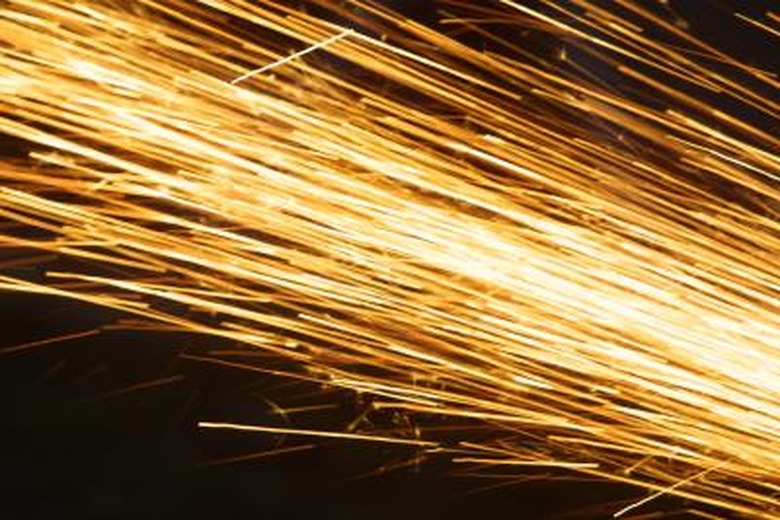What Kind Of Welder Do I Need To Weld Aluminum?
Aluminum alloys provide more of a challenge to welders than steel alloys. Aluminum has a lower melting point and higher conductivity than steels, which can result in burnthroughs, particularly in thinner aluminum sheets. Aluminum feeder wire is softer than its steel counterpart and can tangle in the feeder. Choosing a welding method for aluminum depends on the needs of the particular application and the skills of the welder who will be performing the fabrication.
TIG Welding
TIG Welding
Tungsten inert gas (TIG) welding is the primary method used to weld aluminum. Because the aluminum work piece requires a lot of heat to get up to temperature–but can hold that heat for a long time–a welding machine with current control is useful for keeping the aluminum work piece from overheating, causing a burnthrough. TIG welding can be applied to both thin aluminum sheeting and thicker aluminum plate. Because TIG welding requires a separate filler rod, the welder must choose a welding rod with an alloy as close to that of the work pieces as possible.
MIG Welding
MIG Welding
Metal inert gas (MIG) welding can be successfully used to weld aluminum. When selecting a welder, it must be decided whether spray arc welding or pulse welding methods will be used. Pulse welding requires an inverter power supply, while constant current and constant voltage machines can be used for spray arc welding. MIG welding is best for thinner gauges of aluminum sheets because of the amount of heat needed. When choosing a shielding gas, 100 percent argon is best for MIG welding aluminum. The welder must choose a welding wire or rod that has an alloy as similar to that of the work pieces as possible to create a quality weld.
Torch Welding
Torch Welding
Aluminum can be welded using a gas-fed torch, but this method is more difficult than MIG and TIG welding. It is more difficult to control the heat applied to the work piece with the torch, and burnthrough is more likely when using a torch. Torch welding of aluminum requires a dexterous welder who can adequately control the torch and the filler rod.
Cleaning Aluminum Work Pieces
Cleaning Aluminum Work Pieces
No matter what type of welder is used to fabricate an aluminum weldment, the work pieces have to be extremely clean before welding begins. Aluminum oxide has a much higher melting point than the base aluminum, so any oxides that remain on the surface of the work piece can result in oxide inclusions in the weld, reducing the overall strength and appearance of the weld. The work pieces can be cleaned using a chemical etch process or cleaned mechanically using a wire brush.
Cite This Article
MLA
Kristoff, Susan. "What Kind Of Welder Do I Need To Weld Aluminum?" sciencing.com, https://www.sciencing.com/kind-do-need-weld-aluminum-5608169/. 24 April 2017.
APA
Kristoff, Susan. (2017, April 24). What Kind Of Welder Do I Need To Weld Aluminum?. sciencing.com. Retrieved from https://www.sciencing.com/kind-do-need-weld-aluminum-5608169/
Chicago
Kristoff, Susan. What Kind Of Welder Do I Need To Weld Aluminum? last modified March 24, 2022. https://www.sciencing.com/kind-do-need-weld-aluminum-5608169/
